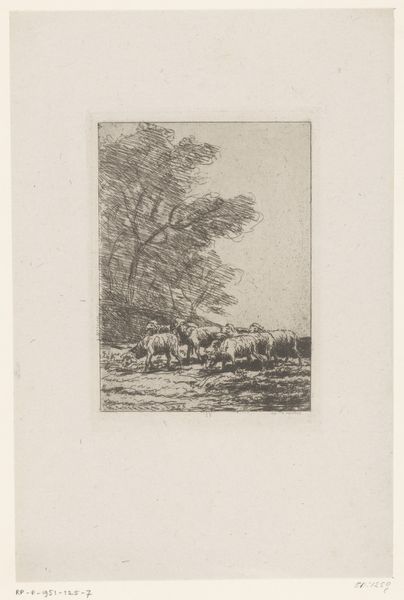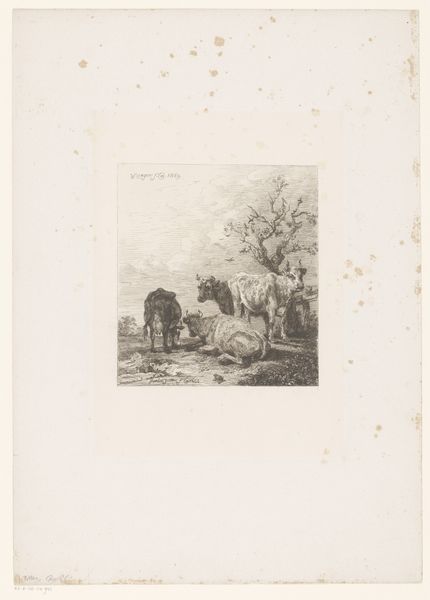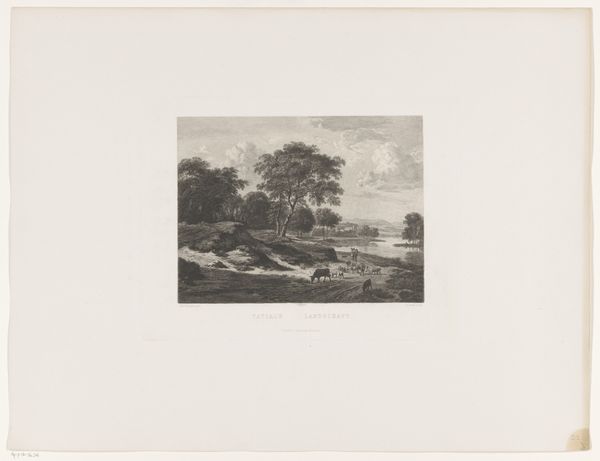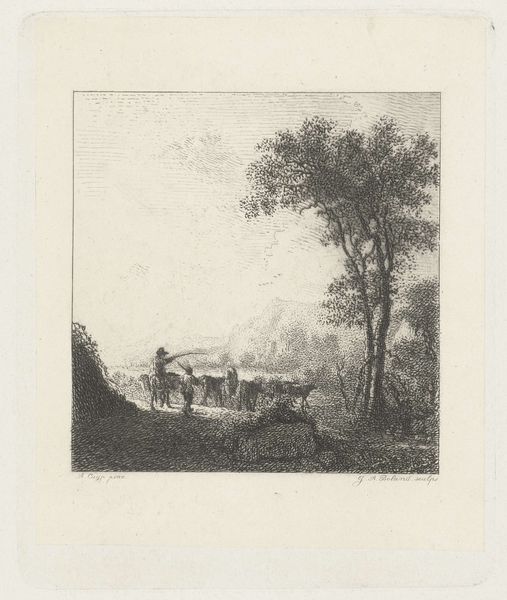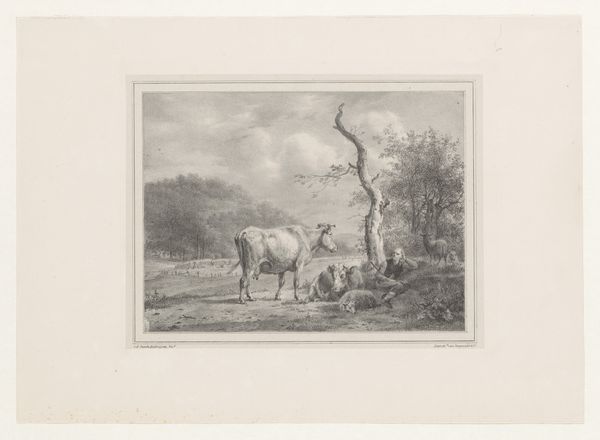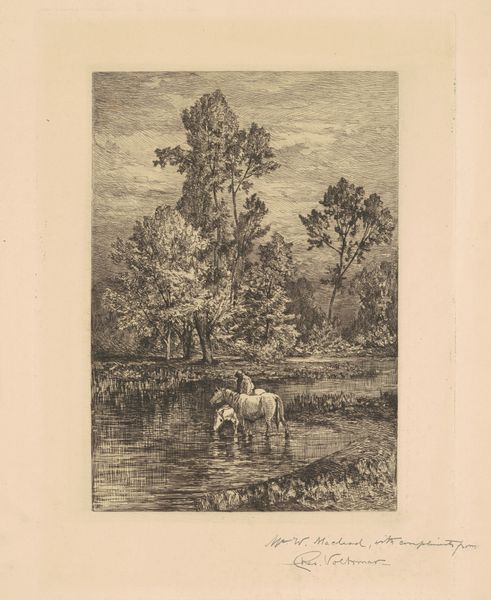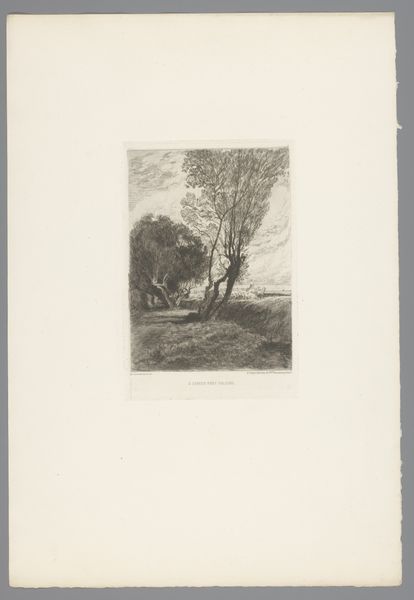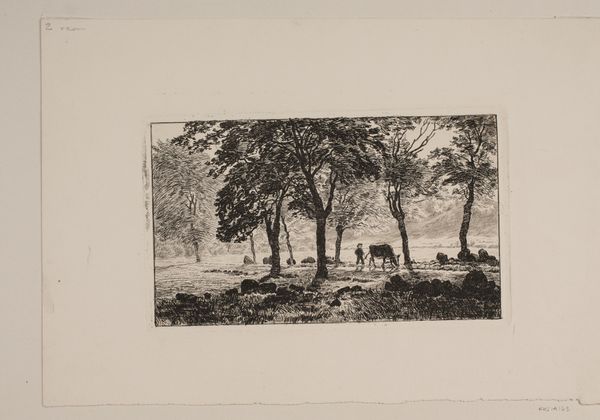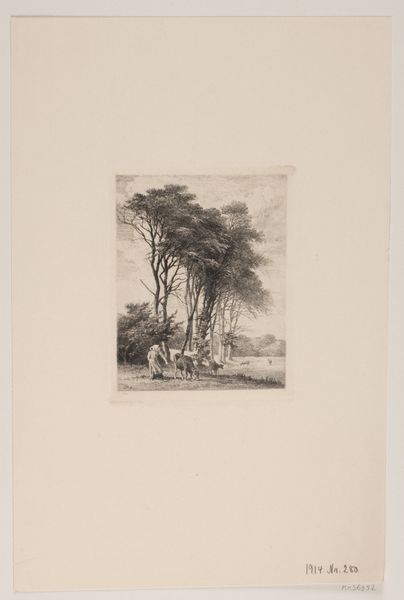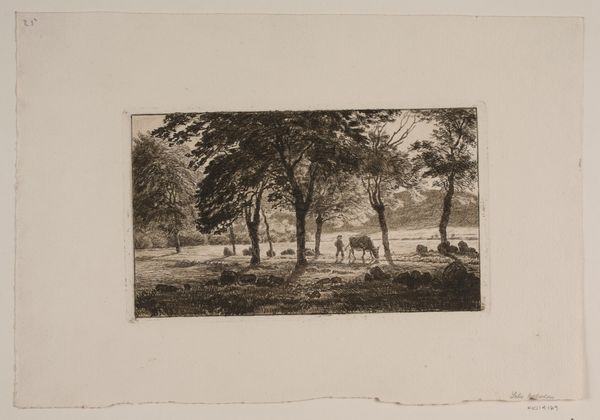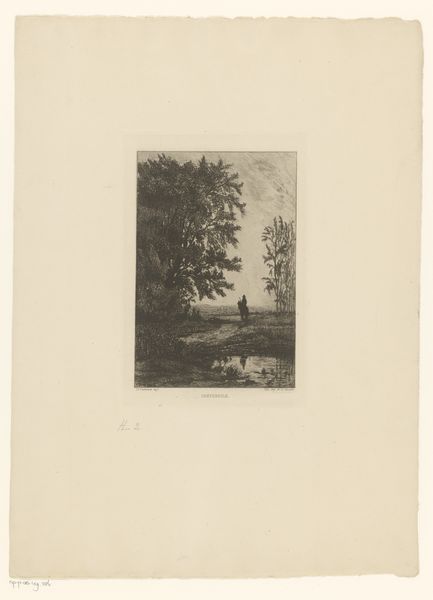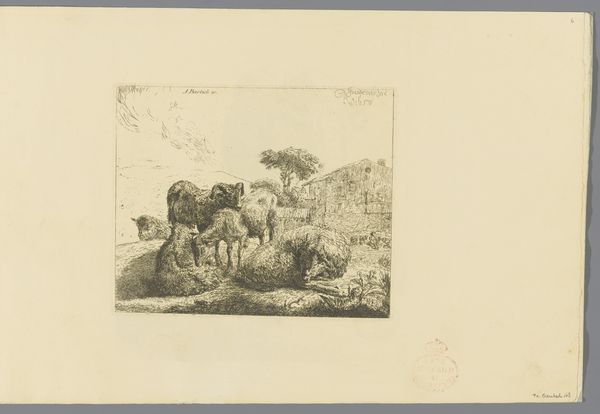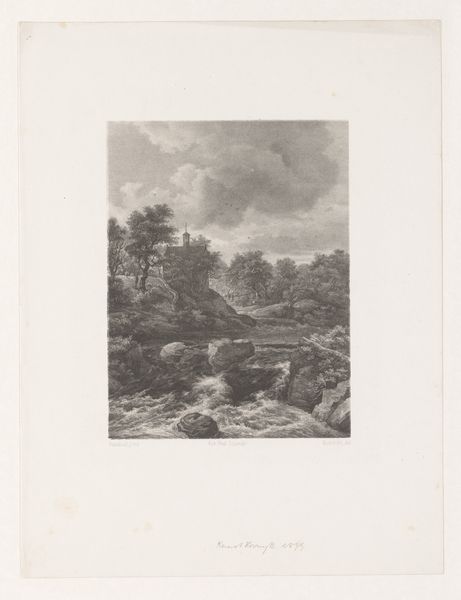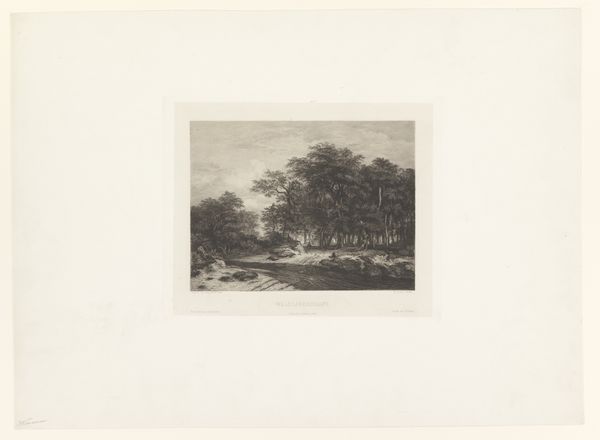
print, etching
# print
#
etching
#
old engraving style
#
landscape
#
river
#
pencil drawing
#
genre-painting
#
realism
Dimensions: height 238 mm, width 164 mm
Copyright: Rijks Museum: Open Domain
Editor: This is "Cows by a Watering Place on the Bank of a River," an etching from 1874 by Léopold Flameng. The composition feels very traditional, like a scene you'd find in a history book, almost frozen in time. How do you interpret this work within its historical context? Curator: It’s crucial to view this pastoral scene through the lens of the late 19th century. While seemingly bucolic, these images played a role in constructing and reinforcing certain notions of national identity and land ownership. Consider the rise of industrialization at the time; these images offered an escape, an idealized vision of rural life increasingly distant from the urban experience of many. Editor: So, it's not just about cows drinking water? It's about longing for a simpler time? Curator: Precisely. And who gets to own that simple time? Whose labor sustains it? Look at the detail given to the landscape versus the lack of specificity in the figures who may have actually worked this land. These scenes, while appearing natural, often sanitize the harsh realities of rural life, the socio-economic struggles of farmers and agricultural laborers. The painting promotes a specific social perspective. Editor: That's interesting. I never considered the lack of human figures as a deliberate choice. Curator: The absence is as telling as the presence. What assumptions does it encourage us to make about the relationship between humanity and nature? What socio-economic realities are erased through the exclusion of rural workers? Editor: It really shifts my perspective on what I initially perceived as a calm, simple landscape. Thanks, this was incredibly enlightening. Curator: Likewise. Hopefully, we can learn to see even the most serene images as potential sites of power and representation.
Comments
No comments
Be the first to comment and join the conversation on the ultimate creative platform.
